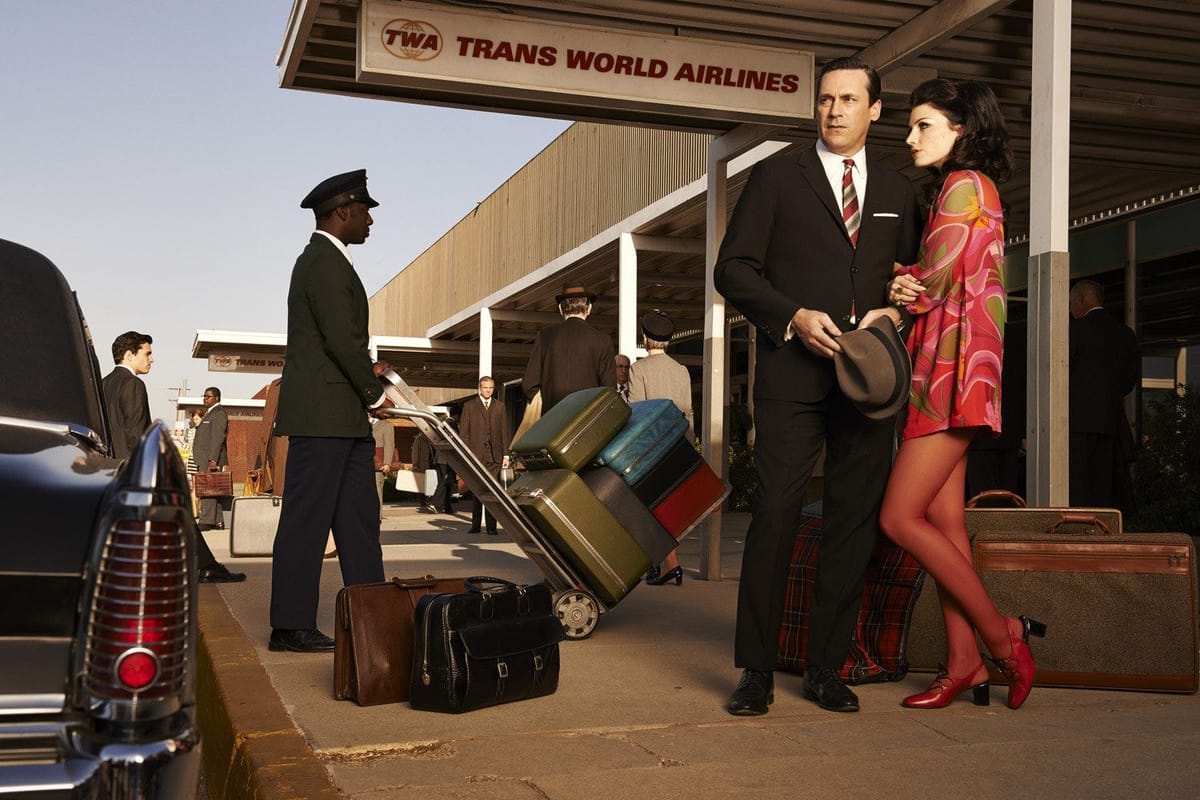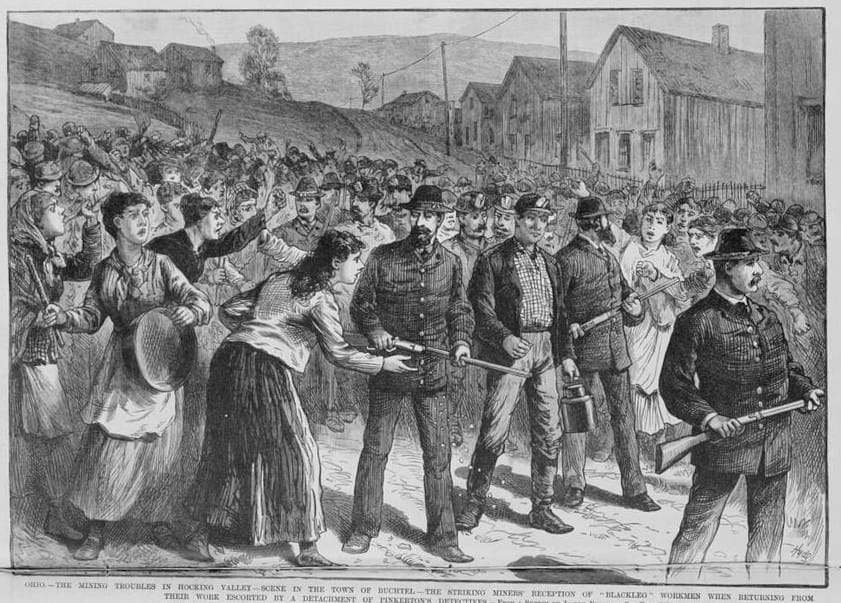The Black ad executive who wrote Coke's famous jingle

From Medium: "Songwriter, producer, and McCann Erickson executive Roquel “Billy” Davis, conceived and co-wrote “I’d Like To Buy the World A Coke” for that famous 1971 campaign. Davis’s biography is every inch as remarkable as the fictional Don Draper or any other character from Mad Men. Born in Detroit in 1932, he wrote songs in the 1950s for Jackie Wilson with his partner, Berry Gordy. Early in his career, Davis also worked with Chuck Berry, Bo Diddley, and other blues and rock pioneers on the Chess label. Later, Davis and Gordy started the Detroit R&B label Anna Records and recruited a teenaged Aretha Franklin, along with Mary Wilson, Smokey Robinson and the Miracles, and what became the Four Tops. As Gordy took more control over the growing company, Davis’s work was increasingly marginalized. He began to look elsewhere."
If sound could travel through space, the sun would be as loud as a jet airplane

From Reddit: "The Sun is immensely loud. The surface generates thousands to tens of thousands of watts of sound power for every square meter. That's something like 10x to 100x the power flux through the speakers at a rock concert, or out the front of a police siren. Except the "speaker surface" in this case is the entire surface of the Sun, some 10,000 times larger than the surface area of Earth. Most of that sound energy just gets reflected right back down into the Sun, but some of it gets out into the solar chromosphere and corona. None of us (professional solar physicists) can be sure, yet, just how much of that sound energy gets out, but it's most likely between about 30 and about 300 watts per square meter of surface, on average."
The one-eyed African queen who defeated the Roman Empire

From Narratively: "The legendary Roman emperor Caesar Augustus was on the Greek island of Samos, preparing for an important expedition to Syria, when he received envoys from the Kingdom of Kush, in present-day Sudan. Journalist Selina O’Grady records in her book And Man Created God that the ambassadors presented Augustus with a bundle of golden arrows and relayed this message: “The Candace sends you these arrows.” (Candace was the Latinized spelling of Kandake, the Kushite term for “queen.”) They added that the emperor had two options for how to view the offering: “If you want peace, they are a token of her warmth and friendship. If you want war, you will need them.” This Kushite queen — described as “a masculine sort of woman and blind in one eye” — had proved to be a formidable foe for Caesar Augustus. He received the bundle of arrows from the envoys and promptly signed a peace treaty."
Editor's note: If you like this newsletter, please share it with someone else. And if you really like it, perhaps you could subscribe, or contribute something via my Patreon. Thanks for being a reader!
The Eider Keepers: A 400-year-old Norwegian tradition of protecting duck nests

From Biographic: "When I met Stensholm in mid-June on a remote island in the Hysvær cluster of the Vega Archipelago, where he lives for part of the year, he was guarding 67 eider nests, trying to protect the mothers and their offspring from predators like gulls, as well as mink, otters, and sea eagles. Like all wild birds, eiders can survive without human assistance. But across much of their range—including Iceland, Greenland, Alaska, the Russian North, and Canada—humans and common eiders have forged a unique, mutualistic bond. In Vega in particular, research suggests that a 400-year-old relationship between eiders and caretakers like Stensholm leads to higher survival rates and more stable populations for the seabirds. During the nesting season from May to July, the 50 or so people in Vega who still practice the “bird keeper” tradition voyage to the archipelago’s remote outer islands—many of which have been handed down through families for generations—to take up temporary residence."
Even etymologists don't know how the word "fink" came to mean informant or spy

From the Oxford University Press: "Fink, which emerged about a hundred and thirty years ago, surfaced in American English and has American roots. In the linguistic journal Comments on Etymology for May 1, 1988, Archie Green listed thirteen hypotheses purporting to explain the origin, use, and spread of fink, including a theory that it came from Mike Fink, an Ohio Mississippi River boatman known for his treachery; a mispronunciation of "pinks," which is what striking workers called the Pinkerton guards sent to break up their demonstrations in 1892; from the word fenks, which meant whale blubber, and was sometimes used to mean a prostitute in San Francisco; and the German word for a finch, meaning a bird, which some thought might have gotten a negative connotation because finches are known to peck in horse manure. At the end of the day, the origin of fink remains undiscovered."
Michel Lotito, the French entertainer who once ate an entire airplane

From Medium: "Michel Lotito was a French entertainer, born in Grenoble, famous for being a talented eater. Lotito began his habit of eating unusual material at around 16 years of age. Doctors diagnosed him with an eating disorder known as pica, which is a psychological disorder that caused him to have an appetite for substances that are largely non-nutritive. Lotito had thick stomach and intestines lining which allowed him to consume sharp metallic objects without suffering any harm. His digestive juices were so powerful that he could digest even metals. Lotito became a public performer and his performances involved eating metal, glass, rubber and other “indigestible” materials. He would disassemble, and consume items such as bicycles, shopping carts and televisions. Probably the biggest thing he ate in his life is a Cessna 150 aeroplane. It took him roughly two years, from 1978 to 1980, to finish eating the plane."
He was working near a public library with a piano and stopped to play
A team of workers were on a job in Edmonton, Canada, when they saw through a window a library’s public piano. “I’d told my co-workers for years I played piano,” said Archie Gould of Venger Electrostatic Coating, “but never had an opportunity to show them”:pic.twitter.com/OpokWDpt7g
— Ben Phillips (@benphillips76) May 22, 2024
Acknowledgements: I find a lot of these links myself, but I also get some from other newsletters that I rely on as "serendipity engines," such as The Morning News from Rosecrans Baldwin and Andrew Womack, Jodi Ettenberg's Curious About Everything, Dan Lewis's Now I Know, Robert Cottrell and Caroline Crampton's The Browser, Clive Thompson's Linkfest, Noah Brier and Colin Nagy's Why Is This Interesting, Maria Popova's The Marginalian, Sheehan Quirke AKA The Cultural Tutor, the Smithsonian magazine, and JSTOR Daily. If you come across something interesting that you think should be included here, please feel free to email me at mathew @ mathewingram dot com



